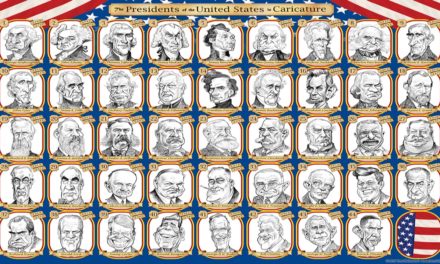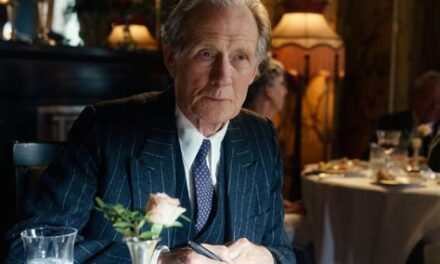Bernard Cornwell will certainly never win the Nobel Prize in Literature. As he has admitted, he’s not a Jane Smiley or, to list some of the other authors he admires, John Cowper Powys or Anthony Trollope; he writes stories, not works of art. Things that plagued and continue to plague many of the famous names of 20th and now 21st century don’t bother him. Writer’s block, the demon of tortured souls (Camus, for example), is something, as Cornwell once remarked, he simply can’t afford. And looking at the list of books he’s produced (about sixty), one can’t imagine a single moment in which he drew a blank about what to write next. Like P. G. Wodehouse, Cornwell, now eighty, may pass from this life with his notebook in his lap.
Did he dream of being a writer? Perhaps the dream lodged itself in the back of his mind, but like so many young aspiring authors, Cornwell found himself studying history at University College London and, after graduation, teaching. After a few years, he began work with the BBC, rising to head of current affairs in Northern Ireland. And there he might have stayed except for his meeting his future wife Judy, an American travel agent, in Edinburgh in 1978. He followed her to the U.S. in hopes of staying but was refused a green card.
If he wanted to work in America, the best avenue before him was writing for a living, which happily didn’t require a green card. Given his love of both history and C. S. Forester, he chose to create his own saga of the Napoleonic wars, not on the high seas, but on land, chiefly Wellington’s peninsular campaign, strangely, a subject no other novelist had attempted. In 1981, the year after his marriage to Judy, Sharpe’s Eagle, the first of the series, appeared in print. Twenty-four have been published as of last year, with a twenty-fifth coming in 2024.
Richard Sharpe ranks as a lieutenant in Wellington’s army when we first meet him, but he wasn’t always an officer. Too poor to buy a commission—something he never sought anyhow—he reached officer grade by being at the right place at the right time to save his commander’s life. For that deed, he was rewarded not with a medal but with his lieutenancy. Importantly, he leads a company of riflemen, which isn’t a generic term. The French didn’t use rifles; neither did the greater part of the British force. But Wellington’s army did have a few rifle companies such as the one under Sharpe, using guns that loaded much slower than a musket but had the advantage of deadly accuracy. (The old quip about the musket was no joke: beyond 150 yards, one had about as much chance of hitting the moon as hitting his target.) Maybe the French didn’t like or use them, but it’s a sure bet they learned to fear them.
Coming as he does from humble origins, Sharpe is no philosopher. He doesn’t appreciate the deeper questions of whether Napoleon is tyrant or blessing. For him, the Grand Armée must be stopped because if it prevails, everyone will have to speak French and eat snails. But those rather insignificant reasons give him grounds enough to fight the enemy with a will. Something of a scoundrel with women and certainly lacking the finer graces, Sharpe is nonetheless quite resourceful. More than once he will use his native ingenuity, discipline, and courage to get himself and his men out of an impossible situation. The examples are perhaps too numerous to list, but they’re impressive not so much for their number as for being thoroughly believable, at least for someone as keen as Sharpe.
Although Cornwell achieved success with Sharpe, even a BBC series with Sean Bean, he began creating other characters in different eras of history. The American Civil War, the Hundred Years’ War, the American Revolution, the tantalizingly hazy age of Arthur—all have benefitted from the Cornwell touch. Stand-alone novels such as Gallows Thief, a novel that begged for the sequel it hasn’t gotten, also appeared.
Perhaps the most famous series Cornwell has managed beyond Sharpe, what’s now called The Last Kingdom, comprises a dozen or more novels plotting the life and adventures of Uhtred of Bebbanburg, a saga of England’s struggle, much of the time under King Alfred the Great, to come into existence. I will not lie: I haven’t read one of them. Instead, I watched the entire series on Netflix, along with its climactic final movie, Seven Kings Must Die, starring Alexander Dreymon as the hero.
If the series stays faithful to the books (something I hope eventually to find out), the novels create a fast-moving tale of blood and violence. Uhtred, a Northumbrian by birth, as a child becomes property of the conquering Danes that kill his father and effectively take his city, with a little help from his treacherous uncle. Interesting, bold, and often frustrating, Uhtred grows up a man of divided loyalties. Is he English or Dane? Pagan or Christian? In his heart, he desires nothing more than to regain his patrimony as lord of Bebbanburg, but the turbulence of the age, with small, scattered kingdoms rising and falling, Christian one decade, Dane the next, more often than not makes the dream’s fulfillment seem remote or impossible.
As with so much of Cornwell’s work, The Last Kingdom reflects its author’s dedication to historical accuracy. Needless to say, the chronicles of that distant time offer a dimmer sketch of the daily lives of kings and commoners than diaries, letters, dispatches, and eye-witness accounts give of generals and soldiers of the Napoleonic wars, but working with what he has, Cornwell manages to paint a convincing picture of a violent, uncertain age, of rough-hewn people in a rough-hewn world.
Watching The Last Kingdom (still on Netflix) offers a good idea of Cornwell the storyteller. But, of course, he’s meant to be read, and, for me, reading Cornwell at his best is reading Sharpe. As I said at the beginning, he may never win the Nobel Prize in Literature. But if the august committee in charge of the famous prize could find its way to creating a category for historical fiction, Bernard Cornwell would be a deserving laureate.














